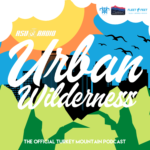Listeners:
Top listeners:
-
play_arrow
RSU Radio Real College Radio
-
 play_arrow
play_arrow
Urban Wilderness: Turkey Mountain Rocks!

Formed in 2018, Las Karamba is a band composed of six women from Catalonia, Venezuela, Panama, Cuba, and Argentina. These women aspire to empower women and help each other through their music.
 The unique blend of women creates a unique sound from different genres of music that ranges from Salsa and Rhumba to Hip Hop.
The unique blend of women creates a unique sound from different genres of music that ranges from Salsa and Rhumba to Hip Hop.
I recently listened to their album and decided to write an article over it as well as translate some of their lyrics from Spanish to English. After each description of each song, there will be some of my favorite lyrics from each song translated in English.
The title of their first and latest album is ”Camino Asi” which translates in English to ‘I walk like this’. Throughout the album, they tell the stories of women struggling throughout life.
Their first song on the album is called “Presentes” featuring Erik Castillo, a poem by Guisela Lopez. This first song sets the tone for the rest of the album.
Llegamos aquí presurosas.
(We arrived here in a hurry)
Hemos venido, convocadas por un sueño.
(We have come, summoned by a dream)
Las mujeres, recorremos las plazas del mundo desplegando palabras.
(Women, we travel the squares of the world unfolding words)
Hemos llegado de todas partes, unas tristes, otras alegres, algunas rotas.
(We have come from all over some sad, some happy, some broken)
The second track highlights the social pressures that women can face in life. They touch on how women can sometimes be expected to act or be a certain way. These include pressures to have a family, a nice house, and to always be well dressed with the latest fashion trends. The chorus and title of the song is Basta Ya which translates to ‘enough already’.
Resulta sólo vivimos pa’ trabajar
(Turns out we only live to work)
Nos manden en los que deseamos como pensamos, que decidimos
(They tell us what we say, how we think, what we want)
Prepárate pa’ tener hijos y una gran casita con jardín bonito
(Get ready to have children and a big house with a nice garden)
Rodearte de gente rica pa’ aparentar
(Surround yourself with rich people to pretend)
Bien vestida, bien peinadita
(Well dressed, well groomed)
Ultima moda, sembré bien bonita
(Latest fashion, always very pretty)
Estoy harta ya
(I’m fed up already)
The third track is about a grandmother who longs for freedom from her husband, her name is the title of the song, “Margarita“.
Un dia no muy lejano mi abuela Margarita
(One day, my grandmother, Margarita)
Me dijo que de pequeña
(She told me that when she was little)
Nunca se cuestionaba
(She never questioned herself)
Pero si, se daba cuenta que hombre era el que manda (x2)
(But she realized, that a man is who commands) (x2)
Their fourth track, “Pasa la Pagina” is about a toxic relationship and encourages them to leave that relationship. ‘Pasa la Pagina’ in English translates to ‘turn the page.’ The phrase acts as perfect symbolism from someone transitioning into the next chapter of their life.
Te diste cuenta que, no habrá motivo pa’ seguir llorando por la misma herida
(You realized that there is no reason to continue to cry for the same wound)
Que es necesario dejarlo pasar, buscar la salida
(That it is necessary to let it pass, to look for the exit)
Te diste cuenta, te diste cuenta
(You realized that, you realized that)
Perdí la cuenta, cuántos días llevas bajo la tormenta
(I have lost count, how many days you have been in the storm)
Que te hizo la vida para que le mientas,
(What did life do for you to lie to him?)
Coge tus dolores, hazles la maleta
(Take your pains, pack them)
Their fifth track, “No Saben Nah” features Paula Grande and uses a trap instrumental. The title of the song ‘No Saben Nah’ translates to ‘they don’t know,’ the song is a motivation to look forward and encouragement to keep going.
¿Has visto nuestras madres luchando diario?
(Have you seen our mothers fighting everyday?)
A nuestras abuelas, a nuestras ancestras, papa
(To our grandmothers, to our ancestors, papa)
Deja la huevona, hay que cambiar el pensamiento
(Stop being being lazy, you have to change your thinking)
Este es el momento
(This is the moment)
Estamos a tiempo esta latiendo pienso y siento
(We are on time, I think and feel)
Un movimiento, un Tsunami en expression esta canción
(A movement, a Tsunami in expression this song)
The sixth track is called “El Beso” and is a reminder on the importance of life, which is love. El Beso translates to ‘the kiss,’ which is a metaphor for the kiss of life.
Ya hubo alguien que dijera
(There was already someone who said)
Que no se espera en la vida
(What is not expected in life)
Cuando el beso es verdadero se oye en el silencio
(When the kiss is true, it is heard in silence)
Se descubre en la mirada se detiene en el tiempo
(It is discovered in the look it stops in time)
The seventh track is a dance song called “Voy Subiendo” featuring Yuri Hernandez.
No importa el tiempo
(Time does not matter)
Ni la ciudad
(Not in the city)
Todo el mundo quiere música
(Everybody wants music)
Y la quieren regala
(And they want to give it away)
Paso los días sin descansar
(I spend the days without resting)
The final track on the album is titled, “Sabana” and is a reflection on life. The final track summarizes the theme of the album, life happens and sometimes you’ve got to get up and dance.
El ritmo de la Sabana se baila asi (x2)
(The rhythm of the Savannah is danced like this) (x2)
Tu no lo puede’ apura’ eso se baila asi, tu no lo puede apura’
(You can’t rush this dance, you can’t rush it)
Sin prisa pero sin pausa debes respetar
(Slowly but surely you must respect)
Written by: Vanessa

